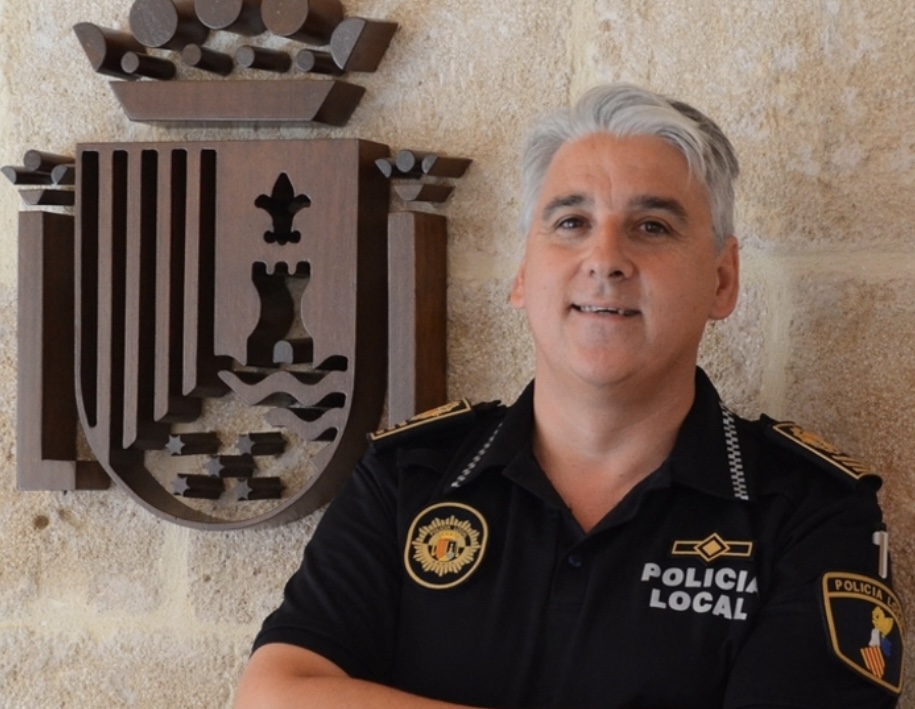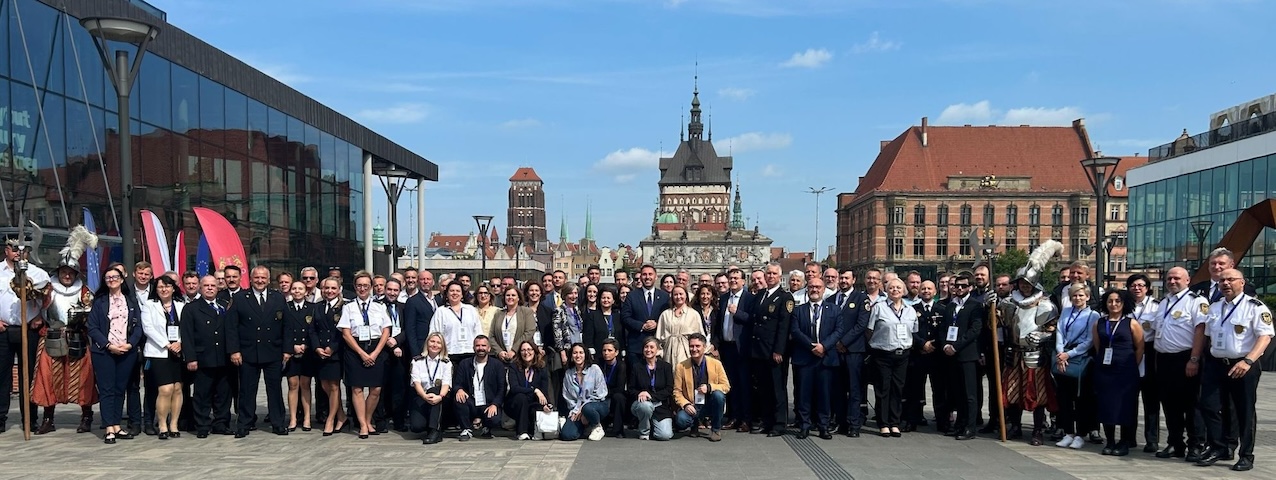June 2025 – The management and protection of public spaces is a major issue for European cities, which remain vulnerable despite technological advances and their efforts to improve the detection of and response to threats and dangers in coordination with all relevant actors.
The European project PACTESUR2, led by the city of Nice (France) since September 2023 and in which Efus is a partner, aims to strengthen the protection of these spaces by promoting exchanges between European local police forces and through public-private cooperation. This project is coming to an end with a final conference that took place on 17 and 18 June in Gdańsk (Poland), before its official conclusion in August.
José Antonio Monfort Pons, Chief Superintendent of the local police in Xàbia (Spain), one of the 11 European cities involved in the project, shares with us the insights he draws from PACTESUR2. We are publishing his testimony below* and would like to thank him for his contribution.

A network of trust
When it comes to European projects on urban security, it is easy to focus on statistics, methodologies, reports or technology. But sometimes, this type of project transcends its initial objectives and leads to something much more valuable: a network of trust, collaboration and humanity between people and cities.
PACTESUR2 has not only helped to improve the protection and security of public spaces, but has also forged strong relationships between cities and European security professionals.
Innovation, ethics and transparency
The first project, PACTESUR (Protecting Allied Cities against Terrorism in Securing Urban aReas) (2019-2022), funded by the European Union’s Internal Security Fund and led by the city of Nice (France), produced strategic tools, protocols and training programmes to address the real challenges of each participating city.
Launched shortly afterwards, PACTESUR2, also supported by the European Union’s Internal Security Fund, added new dimensions: cybersecurity, artificial intelligence, technologies applied to urban protection and more active citizen participation.
This evolution represented a clear commitment to comprehensive urban security, where technological innovation goes hand in hand with ethics, transparency and collective involvement.
The role of the European Forum
The European Forum for Urban Security (Efus) has played a key role in the PACTESUR and PACTESUR2 projects (and many others) to promote collaboration and the sharing of inspiring practices within its network of European cities committed to urban security. Efus’ work to connect people and ideas across borders is particularly important for small and medium-sized cities like ours, as without it we would not have had the opportunity to participate in these projects.
“The friendships forged through the project are proof that European cooperation thrives on genuine personal relationships, which give meaning and continuity to joint efforts.”
Personal relationships: the heart of the projects
During the workshops, seminars, technical visits and working sessions of the two PACTESUR projects, a professional community has been forged, united not only by their roles, but also by empathy, trust and mutual respect.
Municipal technicians, security managers, local police officers and experts from various fields such as urban planning, crisis management and politics found in these spaces an opportunity to share not only their knowledge, but also their emotions, concerns and long-term vision. The friendships forged through these projects are proof that European cooperation thrives on genuine personal relationships, which give meaning and continuity to joint efforts.
Allied cities, mirror cities
One of the greatest achievements of PACTESUR and PACTESUR2 has been to demonstrate that diversity in urban contexts is not an obstacle but a source of richness. Each participating city** brought a unique perspective and we all learned from each other. The exchange of practices facilitated the implementation of tailored and contextualised solutions, avoiding rigid models and promoting real collaboration based on active listening and respect for differences.
Training and citizen participation
PACTESUR and PACTESUR2 also stood out for their educational and participatory approach. Practical guides, simulation exercises, training courses and audiovisual material were developed to bring urban security closer to citizens.
At the same time, these projects have encouraged in-depth reflection on the use of new technologies, such as smart cameras, sensors and artificial intelligence, always from an ethical perspective and respecting fundamental rights such as privacy and non-discrimination.
It is in this balance between innovation and human rights that another key to the success of these projects lies: security designed with and for people.
A new culture of collaboration
The manuals and guides, the shared methodologies, the risk maps and action protocols are valuable tools. But beyond these tangible results, there is something even more important: the collective awareness that contemporary challenges can only be met through transnational cooperation, constant dialogue and mutual empathy.
Perhaps the most valuable outcome of these projects is intangible: a new culture of collaboration between European cities. A culture that transcends political and technical frameworks and is based on a shared vision of the urban future: safe, resilient, democratic and people-centred.
Continuing the project
The PACTESUR2 project is now coming to an end, but this collective effort continues within Efus and the European network of local and regional police forces, EU-POLNET. This platform will ensure that our community of cities and regions remains dynamic, proactive and committed to addressing the challenges of urban security.
Drawing on my humble experience throughout this journey, I invite cities and local and regional police forces across Europe to share our vision. Join Efus and EU-POLNET and become part of this growing community dedicated to building safer urban environments. Your participation will be essential to strengthen this network of knowledge and experience and to stimulate innovation and cooperation on local security in Europe.
* Editor’s note: we have shortened and modified some sections of the text for clarity and conciseness, with the author’s agreement.
** For PACTESUR (besides Efus), Nice (France), Métropole Nice Côte d’Azur, Liège (Belgium), Turin (Italy), and the Italian Association of Municipalities of Piedmont (Associazione Nazionale Comuni Italiani – Piemonte), as well as Efus.
For PACTESUR2 (besides Efus), cities of Liège (Belgium), Madrid (Spain), Nice (France) and Turin (Italy) and the Italian Association of Municipalities of Piedmont. Associated cities: Bologna (Italy), Bratislava (Slovakia), Budapest (Hungary), Gdańsk (Poland), Kordelió-Évosmos (Greece), Lisbon (Portugal), Riga (Latvia), safe.brussels (Belgium), Tallinn (Estonia), Vilnius (Lithuania) and Xàbia (Spain).




